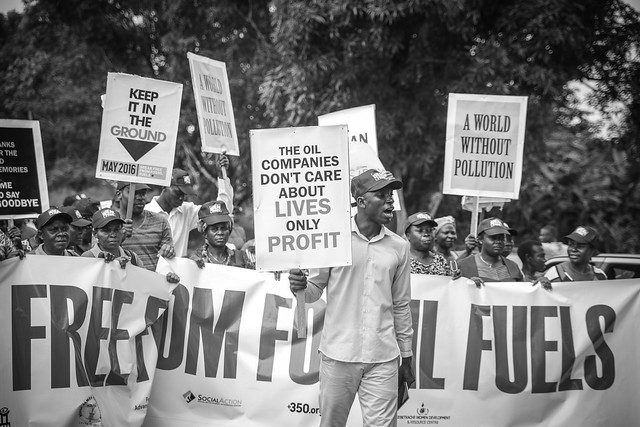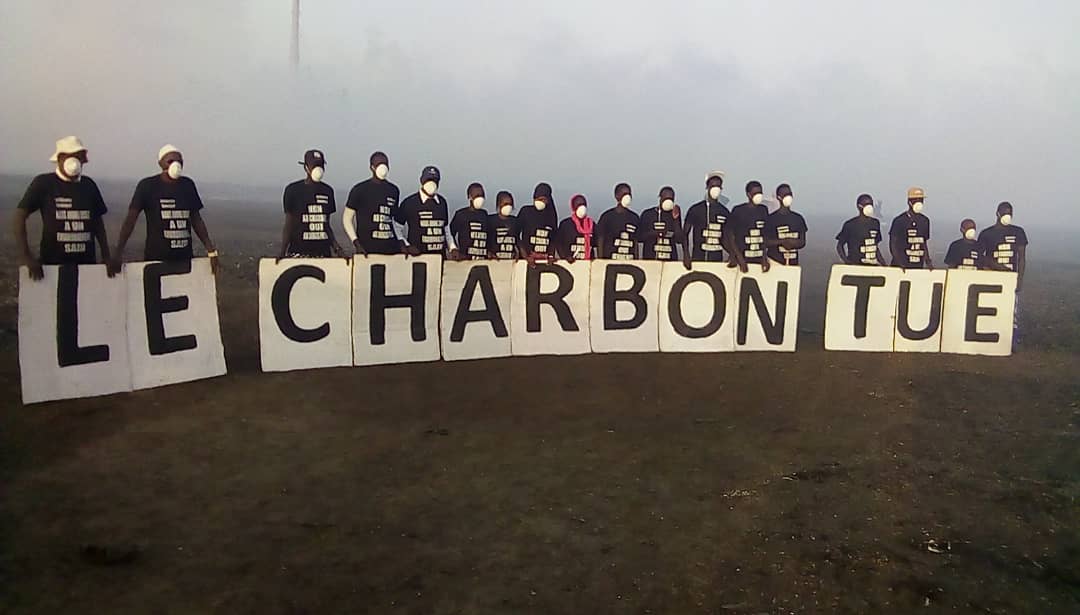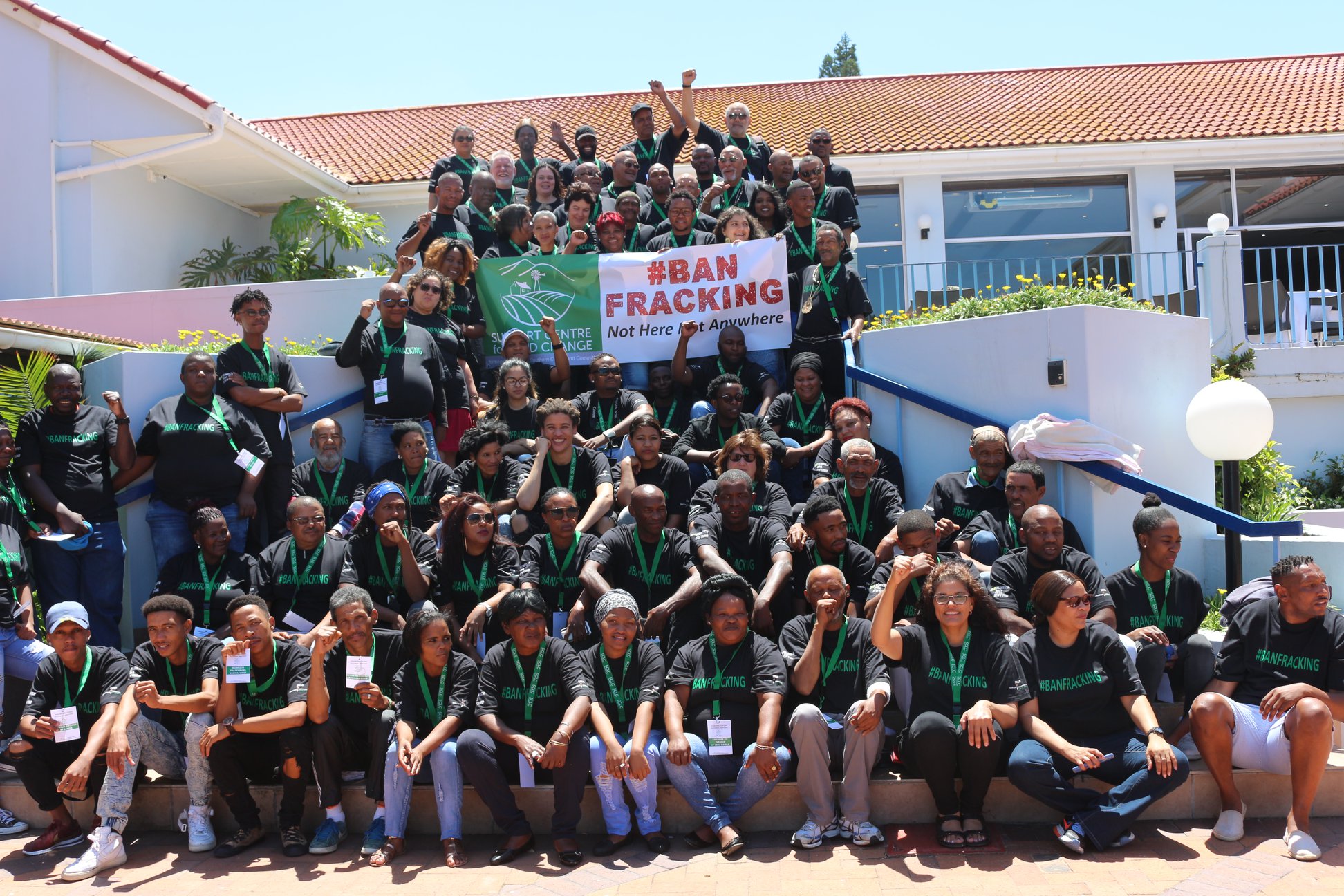Abuja Hotspot for a Global Just Recovery
The just-concluded Global Just Recovery Gathering was a delightful online conference that brought together individuals from all over the world. Participants at the Abuja hotspot hosted on Friday, 9th April 2021 expressed their delight at the outcome of the gathering. The “hotspots”, also held in a number of other countries across Africa, allowed families, friends and colleagues to physically gather together to watch and participate in the virtual sessions that had been organised as part of the gathering.
From the movement story on why we need a new multilateralism for a global just recovery, to the workshop on UNFCCC COP, participants learned from the wealth of experience of the speakers and enhanced their understanding of the climate movement and how everyone's effort is critical in actualising a just recovery world.
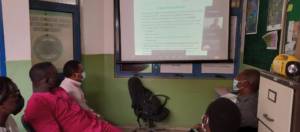
One of the participants expressed his agreement on the issues of global financing discussed by Masego Madzwamuse and other speakers on the subject of multilateralism for a just recovery.
In conclusion, the hotspot event which lasted for four hours was a success as participants got the opportunities to listen to global speakers on current issues and also to appreciate various cultural practices from across the globe.
A big part of a just recovery is bridging the gap and building on equity. By hosting this hotspot event we ensured that those without internet access were able to join this community. Notwithstanding the Covid19 prevention protocols in place, existing members of our movement interacted with the newbies and together made commitments towards a #CoalFreeNigeria at the Global Just Recovery Gathering. To support our movement do check out the #CoalFreeNigeria page and take action with us.
By Ogho Udoko Agnes
Digital organising in the Covid-19 era
The curtains for the Afrika Vuka Climate workshop were drawn with an interesting session on Digital Organizing. This session focused on how activists across the continent can mobilise and campaign effectively in the face of a global pandemic. The panelist, Joseph Ibrahim of the Coal Free Nigeria Campaign and Ibra Cassis of Save Bargny campaign in Senegal took the participants on a ride of their experiences in digital organizing.
For Joseph Ibrahim, he emphasized the importance of establishing the objective of the campaign and how it aligns with existing traditions, culture, religion, and laws of the people. He then stated that these identified objectives should be communicated to the target audience using the most compelling stories.
He advised activists to place a high premium on telling the truth while telling stories of frontline communities as this will be the basis of a successful campaign.
On his part, Ibra Casis highlighted the demographics of internet users across the globe. He stated that with the number of people who use digital platforms on a daily basis, it will be unwise to disregard digital organizing. He further stated that digital organizing is the future and all activists should embrace it.
The panelist proposed a number of tips on digital organizing such as:
- Determine a hashtag for the key message of the campaign e.g #CoalFreeNigeria
- Identify the digital platform where your target audience is.
- Produce quality visual and audiovisual content for storytelling
- Use social media such as Twitter, Facebook, WhatsApp, Instagram and Linkedin to share quality content
- Tag your target audience on your post
- Use online petitions to get people to commit to the campaign
- Publish articles and news items online.
By Joseph Ibrahim of the Coal Free Nigeria Campaign
Building climate-resilient local communities & groups in Africa
350Africa under the #AfrikaVuka platform has brought together organizers, campaigners and journalists to learn from specific campaign case studies and gain campaign skills and tactics that can help grow relevant climate campaigns across Africa.
We, as Mt Kenya Network Forum, operating and working with communities on the footsteps of Mt Kenya. Feel overwhelmingly privileged and honored to be part of session 2 of the climate workshop, exploring and sharing ideas around some of the most important issues related to the climate crisis.
And more importantly, the inspiring campaigns that are part of #AfrikaVuka.
After joining the first #AfrikaVuka Climate Workshop where the speakers gave an exciting introduction to #AfrikaVuka. We felt enthusiastic and passionately interested in the below topic
-
-
-
- Learning experiences from organizers about some of the tactics used for successful campaigns which include grassroots mobilizing /power of coalitions /finance /lobbying and advocacy.
-
-
Mamadou Barry from Senegal focused his presentation on the successful actions in Bargny against the coal power plant which include grassroots mobilising /power of coalitions /finance /lobbying and advocacy - see here some actions of the campaign SaveBargny.
Portia Baffour from 350Ghana Reducing Carbon (G-ROC) gave her experiences on mobilizing and empowering young people in partnership with key stakeholders to actively champion the need to reduce our carbon emissions and promote renewable energy systems as a key effort in combating climate change. Their key role involves contributing and/or influencing national environmental policies, strategies and implementation plans positively through interventions such as public education and awareness creation, publication of briefs and other papers and media engagement in our quest to keep the momentum up and really shift power. Once their key success and achievement has been to mobilize in conjunction with other youth groups to openly protest and petition the government of Ghana’s intention to construct a 700 megawatt of Coal-fired Power Plant for the first time in the country since their return from the event in Istanbul.
Omar Elmawi from Lamu, shared some tactics used on the deCOALonize Campaign in Kenya in four words: Mobilising community, Lobbying, Communications and Litigation. He brings out the challenges in growing as a group, Lack of expertise, Litigation setbacks, time and lack of access to information as the main ones.
The lessons learned out of these great and very successful experiences and group formations will go a long way in assisting our group and the communities we work with. We look forward to the power and momentum we will build with #AfrikaVuka, and more incredible stories and ideas we will all bring to the fore through our organizing. We also ask and advise other young and interested groups to join #AfrikaVuka and attend the remaining sessions of the Climate #AfrikaVuka workshop and join us from the 9th to the 11th of April, for the virtual event / training, aiming at skilling up the climate movement, with inspiring panels and training, bridging intersectional connections among different movements, and creating space for intergenerational dialogues between the youth climate movement and older activists.
By: Stephen Kariuki K
Mt Kenya Network Forum - Founder
AfrikaVuka Climate Workshops
5 years after the Paris Agreement, world leaders are expected to come forward with updated, more ambitious national climate plans made under that historic agreement. Though some countries have tried their best to cut emissions and show bold climate actions, many including the most powerful and heavy emitters are still lagging behind.
Africa is the most-exposed region to the adverse effects of climate change despite contributing the least to global warming. The region is already disproportionately feeling the impacts related to a changing climate. Devastating cyclones affected 3 million people in Mozambique, Malawi, and Zimbabwe in the spring of 2019. Hundreds of thousands across West Africa and the Sahel region are still recovering from the floods that hit last August and September.
Despite this gloomy picture, the regional climate movement is emerging, slowly but surely, challenging the first coal projects in a number of countries and showing the safe pathways to follow if Africa really wants to break free from fossil fuels and embrace a bright and sustainable future based on renewables.
Encouraged by recent victories and guided by our mission to build the capacities of regional organisers, 350Africa is proposing a new series of workshops on winning campaign techniques and tactics, with the hope that the workshop will result in a new wave of large-scale climate actions as we work towards ending the age of fossil fuels and moving to clean, renewable energy.
At the end of the 4 sessions, participants are expected to have gained fresh knowledge, practical skills and confidence that can allow them to launch and/or re-energize the climate struggles and campaigns they are engaged in. They can decide to work on renewable energy campaigns at a local level, target specific institutions behind fossil fuel projects in their areas, or strategize on stopping existing ones. The workshops will also touch on story-telling - a powerful tool in sharing and amplifying the campaigns’ voices and demands.
Click here to register and join the AV Climate Workshops and to meet powerful and motivated organisers and campaigners working to break Africa free from fossil fuels and embrace a bright and sustainable future based on renewables.
The AfrikaVuka Caravan
All across Africa, frontline communities have been stepping up to demand action on climate change from their local leaders not only to protect their environment but also their culture and livelihood.
On May 25th 2019, 350Africa.org in collaboration with many frontline community organizations all across the African continent launched the AfrikaVuka platform with the intent of creating a space where these communities could exchange skills, tactics and show solidarity to each other by getting a deeper understanding of each others campaigns and resistance to climate change and how they can offer each other support.
From May 28th to August 6th, 350Africa.org under the Afrika Vuka platform will be organizing a series of 6 out-of-the-box webinars dubbed the Afrika Vuka Caravan, which takes the form of a virtual caravan running through Kenya, Senegal, Ghana, DRC, SA and Uganda telling the stories of the iconic campaigns in these countries. The webinars will draw upon the collective need to protect the planet by enabling people from across the continent to offer support, lend a voice and show solidarity to these campaigns and the people on the frontlines of these struggles despite the distance brought about by not only geography but also social distancing owing to the global coronavirus pandemic.
The AfrikaVuka Caravan will highlight: stopping the Bargny Coal Plant in Senegal, pushing for fracking to be banned in South Africa, halting the proposed Coal Powered Plant in the exquisite Lamu, Kenya, stopping oil exploration in the iconic Virunga Park in DRC, amplifying the need for renewable energy solutions in Ghana and last but most definitely not least pushing the Standard Bank to not finance the proposed crude oil pipeline that will cut across Uganda and Tanzania.
We are stronger and steadier together, and by lending our voices we can transform our continent by demonstrating that development can take place while protecting our earth, culture, and our people. Let us keep building resilience against the fossil fuel nightmare and Vuka (Rise Up) to a brighter future lit by renewable and sustainable sources of energy.
Author: Rukiya Khamis, 350Africa.org Anglophone Field Organiser.
As climate talks start in Madrid, a people-centered vision for a fossil-free Africa is gaining ground
The climate crisis has been dominating the mainstream media lately. Every week, we hear about climate-related disasters hitting different regions across the world. At the same time scientists keep sounding the alarm about our diminishing ability to rein in the worst of climate change, activists keep protesting against climate inaction and corporations continue violating human rights.
As the UN and global leaders discuss climate change issues at COP25 - that is the 25th Conference of the Parties to the United Nations Framework Convention on Climate Change (UNFCCC) in Madrid, Spain, Africans are rising in ever-growing numbers to resist the fossil fuels industry and champion adapted and affordable climate solutions. Across Africa, civil society groups and local groups are fiercely working towards setting Africa free from coal, oil and gas dependency. Citizens and communities from Lamu (Kenya) to Bargny (Senegal) to Virunga (Democratic Republic of Congo) to San Pedro (Ivory Coast) and Mpumalanga (South Africa) are standing against big fossil fuel companies that are exacerbating the impacts of climate change. These struggles have felt the need to unite and work closely together under the AfrikaVuka platform to achieve greater results and impact. They deserve recognition, support and solidarity.
We cannot stand and watch our lives, economies, ecosystems and resources being put at risk without speaking out. We refuse to accept that our continent, vulnerable and already severely impacted by the effects of climate change, should become the dumping ground of a dying industry. We denounce and reject the rhetoric that coal companies bring ‘development’ and demand greater and active participation in the discussions on future energy choices. For millions of Africans, climate change continues to worsen inequalities at different levels. Supporting people affected irreversibly by climate change, strengthening adaptation mechanisms and addressing the issue of loss and damage are among other core issues being discussed in Madrid, issues which are the central parts of the Paris Agreement.
Four years ago, the Paris climate agreement was signed at COP21. It wasn’t a perfect agreement, but it was the best we’ve managed to get so far, and one that, if fully implemented, would give us a good chance to avoid the worst-case scenarios on the climate crisis. That agreement set a target to reduce global temperatures well below 2C and aiming for 1.5C. Since then, scientists produced a wealth of increasingly concerning reports and studies confirming how only keeping global temperatures from rising beyond 1.5C we will be able to avoid mass die-off of species, destruction of ecosystems and livelihoods and massive migrations as people are forced to flee their homes to seek refuge elsewhere.
Yet, national governments and other powerful actors have failed so far to deliver the sweeping policies and courageous decisions that would stop the world from burning up even further than it has so far. Emissions keep rising, investments in fossil fuels continue and the most vulnerable among us become more and more so by the minute. There are many reasons why this is happening, many reasons why governments are not acting according to what science dictates and what the people need. Apart from COP21, all other climate talks have often been characterised by hypocrisy, greed, empty promises and procrastination, with big polluters deliberately delaying and sabotaging any significant climate action. The influence of the fossil fuel lobby on our governments and on the climate talks themselves has made it so that real progress has been so far stalled, all to allow a few large corporations and national elites to prosper at the expense of everyone else.
We say “no more”
As the climate crisis escalates, African decision-makers must heed the call of the people and urgently take action by focusing on solutions that eliminate fossil fuels and transition to clean and sustainable energy. At the village, city, district and county levels, people are coming together to challenge the power of the fossil fuel industry. Unions, faith groups and non-environmental groups are joining them to build alternative people-centred solutions. With the continuous energy technology innovations making renewable energy more accessible and affordable, we believe that Africa can and must lead the way in this watershed moment in history, by addressing the climate crisis while creating a more just and equitable world and generating millions of new jobs for its growing youth population powered by technologically advanced renewable sources.
Regardless of the outcomes of the current climate talks in Madrid, the fight against climate change will not stop. It’s clear that a just and rapid transition away from fossil fuels is within reach, in Africa just as anywhere else. In fact, the way we deal with the climate crisis matters as much as how rapidly we act. We cannot expect the climate crisis to be meaningfully addressed unless those in power start taking into consideration other social justice issues such as extreme poverty, extraction, neo-colonialism, lack of freedom and inequality. We cannot see the climate crisis solved without putting at the center the very frontlines communities affected by recurrent floods, droughts, environmental destruction, hunger and forced displacement. COPs will continue to be a failure as long as the UN allows fossil fuel industry lobbyists to walk its halls and to influence complacent politicians not to take the strong action needed against what the UN secretary-general himself calls an “emergency”.
Landry Ninteretse is the Regional Team Leader of 350Africa.org.
Telling the African Climate Movement Story
Earlier this month, I had the pleasure and privilege to travel to Gisenyi in Rwanda for a #AfrikaVuka digital organizing and storytelling skills training.
About 20 activists gathered from across Africa to participate in the training. We spent 4 days sharing knowledge, stories, and songs, while building trust and digital organizing skills to take the #AfrikaVuka movement to the next level.
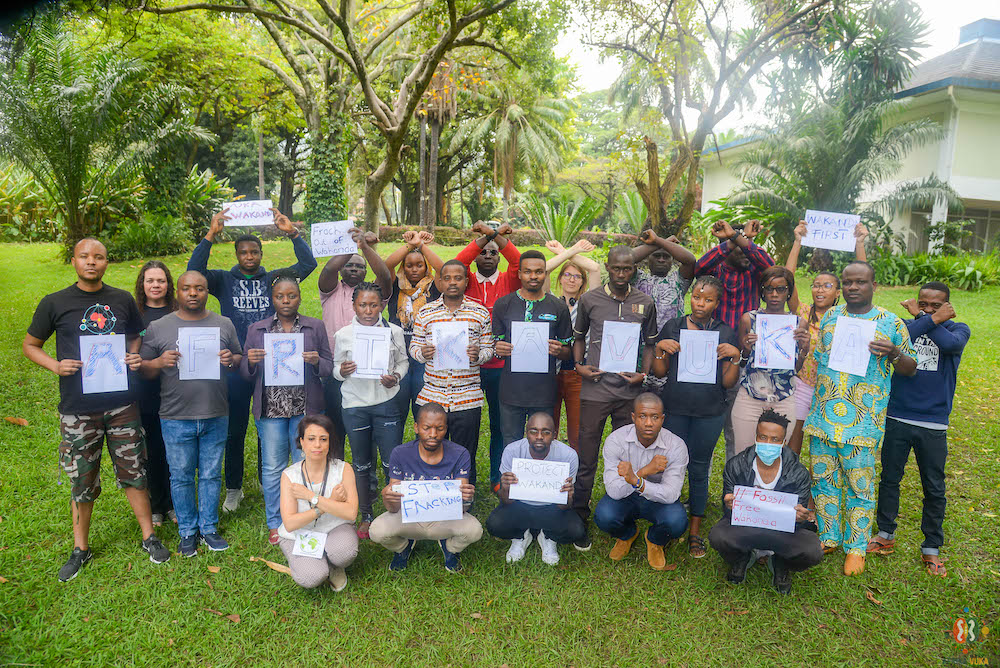
As discussions on the importance of climate stories unfolded, common themes crossing geographic boundaries gave insight into how stories all over Africa are being told. It became imminent that in order to grow the climate movement in Africa, communities living at the frontlines of climate change need to own their stories -- and also challenge the way stories about Africa are told in general.
Entrenched narratives of Africa have often left the continent misunderstood. Crude descriptions of Africa, scaling from the ‘Dark Continent’ to the ‘Emerging One” ignore the complexities of Africa. Instead of trapping Africa into a single story or narrative, this retreat became a space to talk about storytelling practices that speak in their own voice and organizing tools that resonate with people and empower them to tell stories as they are.
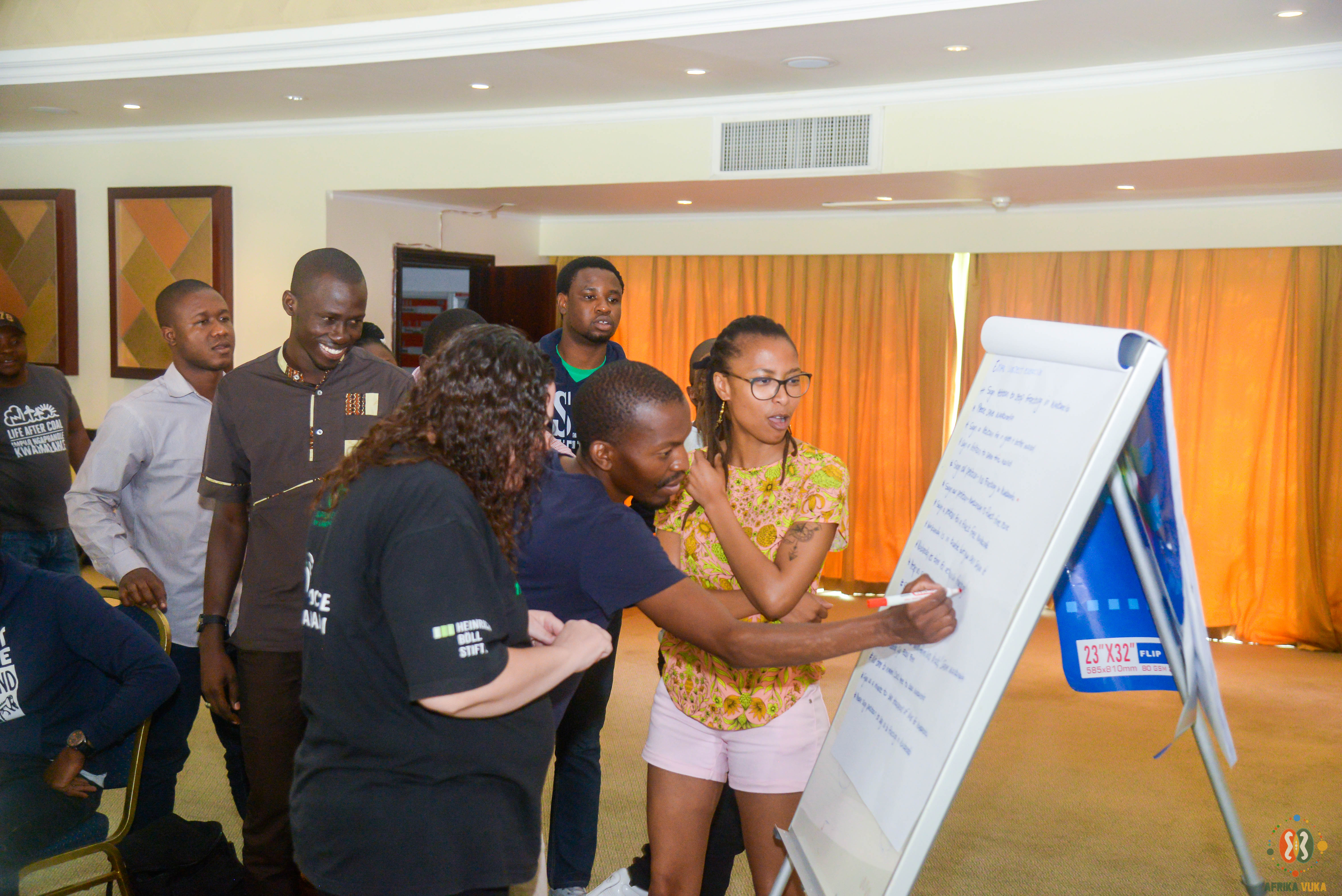
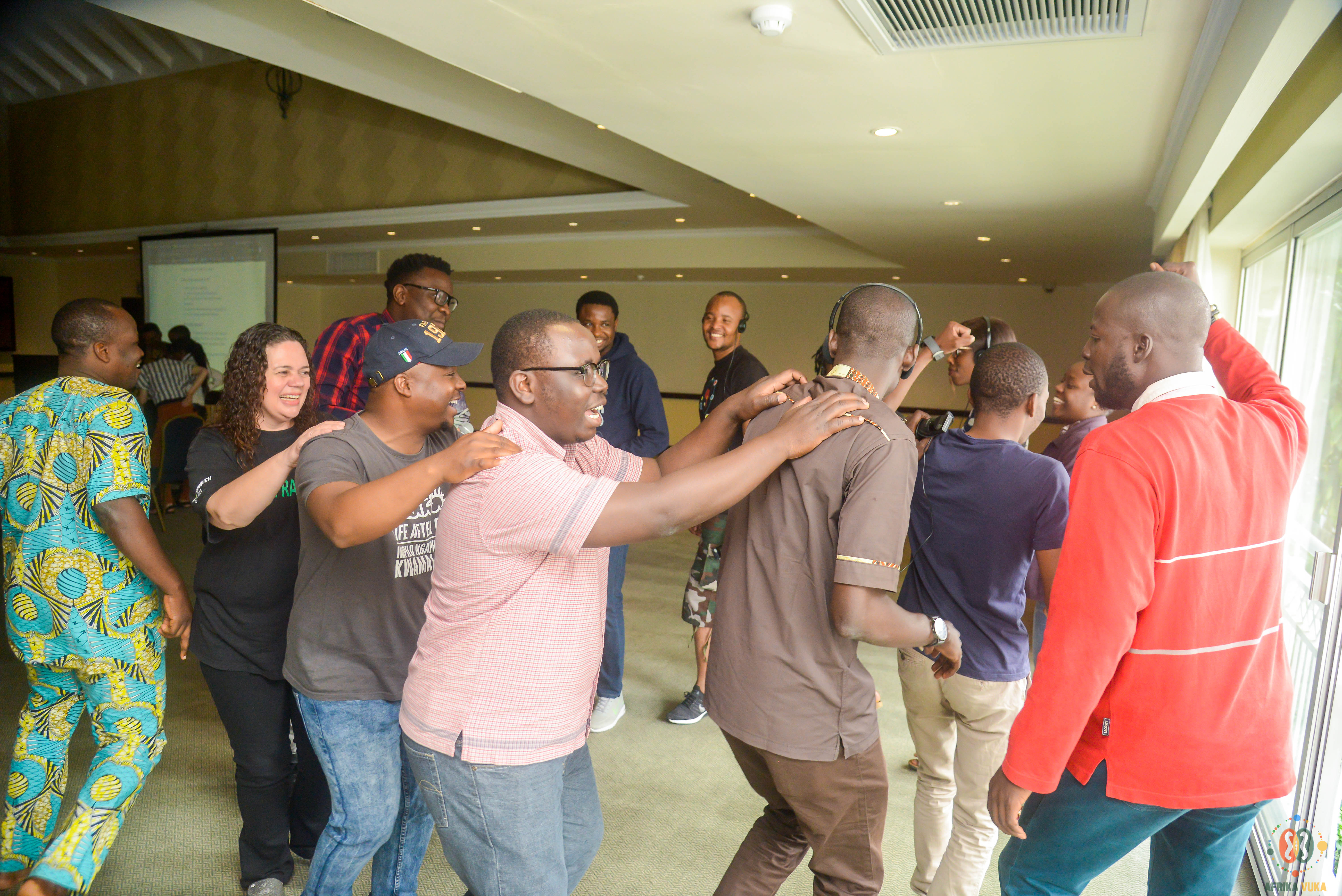
Key take-aways:
- It’s clear that we have to go through a mental shift in our perception of the climate movement in the African context. These experiences can be united with efforts to tackle the climate crisis on a global scale.
- Connecting the climate fights across Africa isn’t only about solidarity, it’s also about strategy. It’s about recognizing that climate change isn’t a single-issue problem. We need to organize not just around climate change, but building the kind of solidarity and unity and that can bring on a massive economic and social transformation that works for everyone -- and use tools and storytelling tactics that speak in individual voices and tools that resonate with our communities.
As the retreat came to a close, a participant shared his story with the group and said: I left my stable life in the UK to go back home and do something about the climate crisis. To me, this is not just about the climate, this is about survival. I can’t think of a better way to convey how I was quickly reminded about the urgency and importance of the work we’re doing together. The need for collective action couldn't be more urgent. As the climate crisis accelerates, it’s up to all of us to take risks for a more just and sustainable world while we still can.
The powerful activists that I met in Gisenyi took their newfound skills and connections back to their local contexts. They’re ready to mobilize in solidarity with communities and take the fight against fossil fuels to the next level. Next stop is the Global Climate Strike. These activists will join thousands of people around the world to organise climate strikes in workplaces and communities on 20 and 27 September. Find out more here.
More: As part of the storytelling session, participants were asked to create content that explains why they’re in the fight for climate justice. Here’s some of what came out it:
Photos:
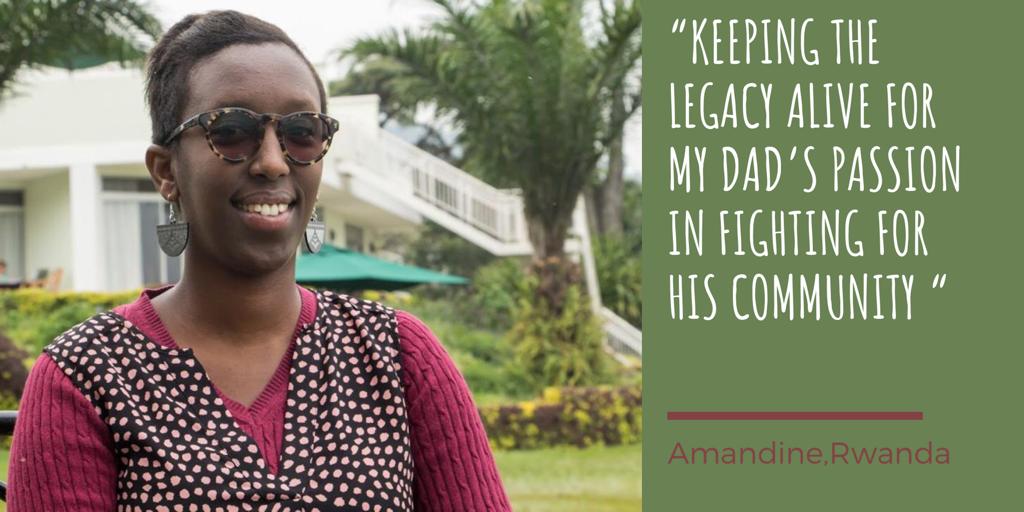
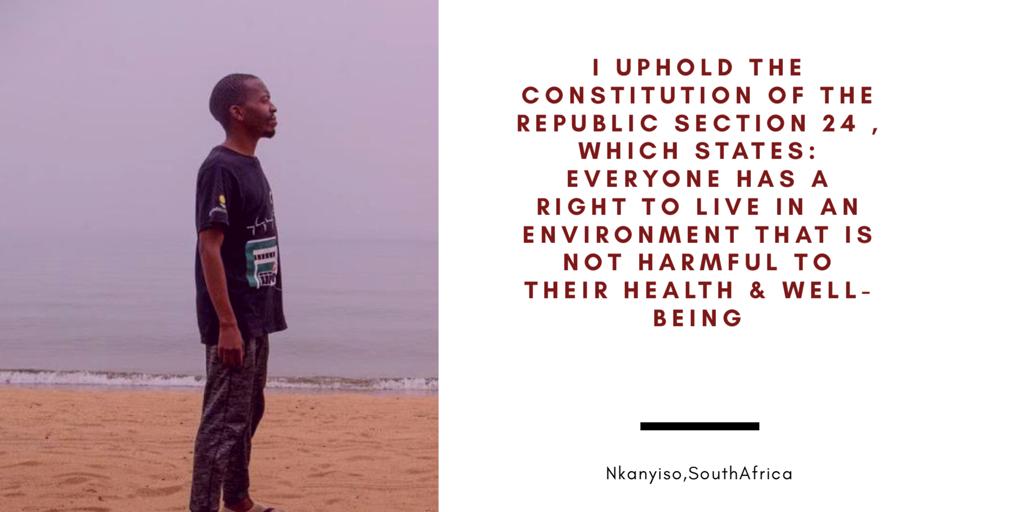
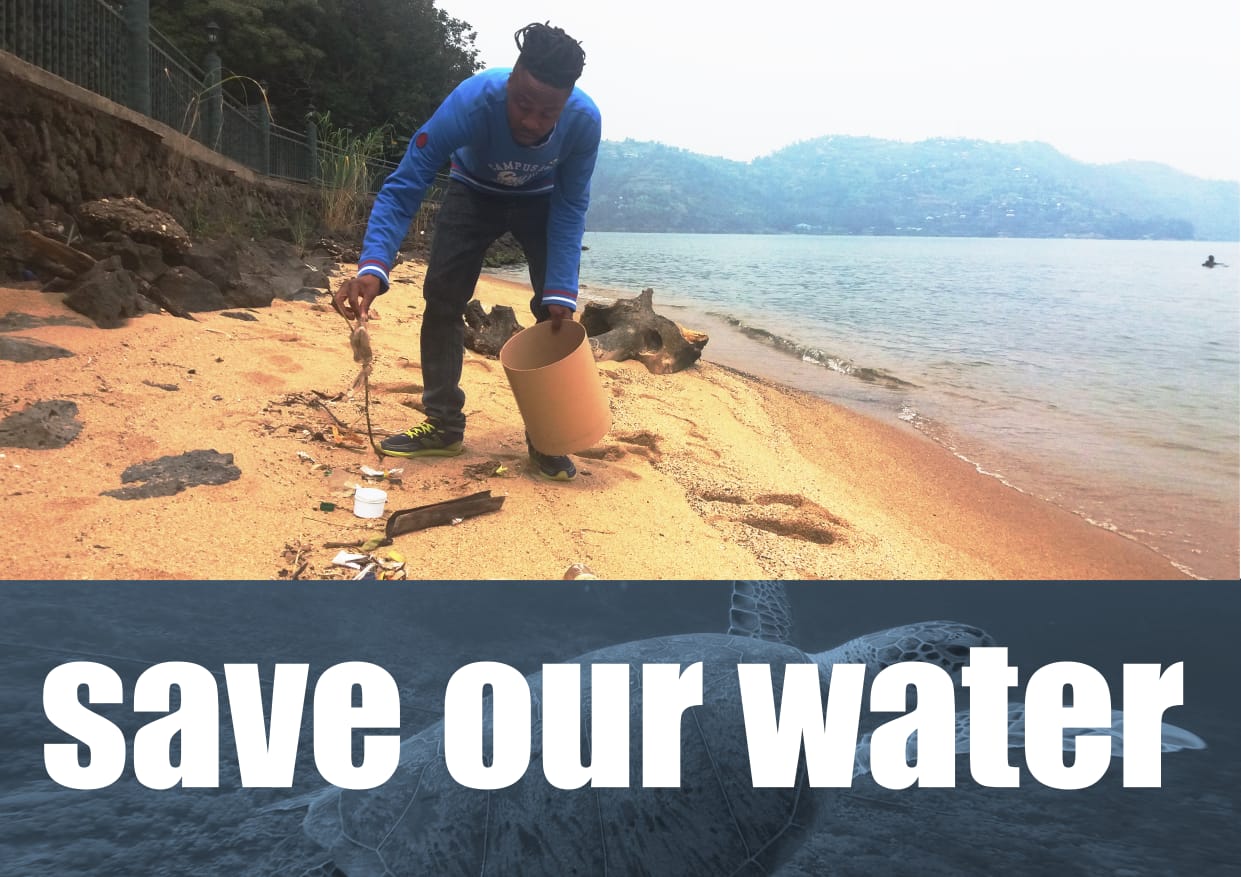
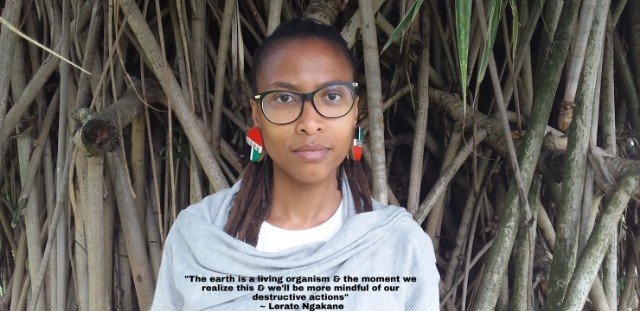
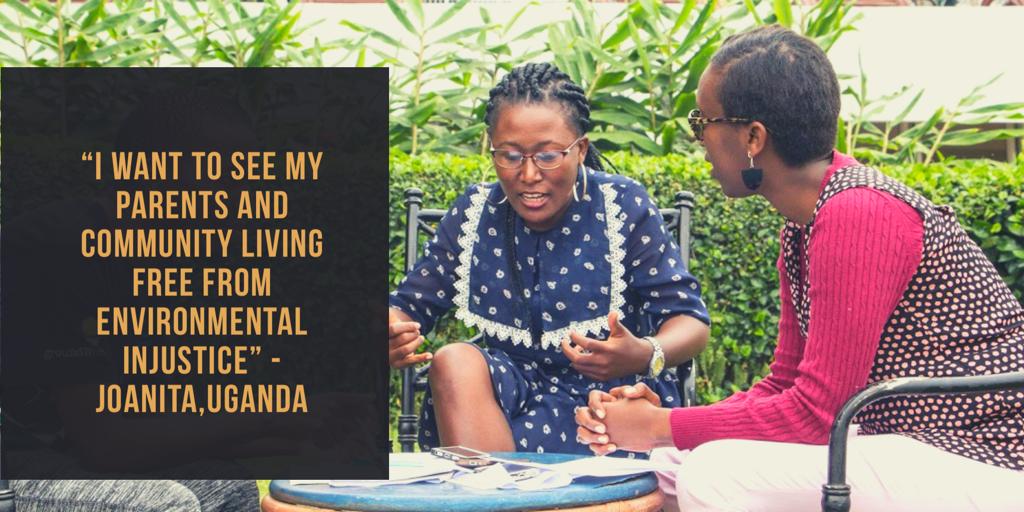
Videos:
Author: Chris Kif, 350Africa Digital Campaign Manager
We’re days away from rising up calling on our leaders to fight climate change.
We’ve seen throughout history that movements that promote progressive social change have been driven by ordinary people dedicated to leading when governments have failed. People power leading the way has become even more relevant as the effects of climate change have begun to unravel across Africa, as leaders across the length and breadth of the continent prop up the importation and exploitation of fossil fuels.
As part of Africa Day, on May 24-25 we will see the determination of people, in communities across Africa rise up against new fossil fuel exploration, and developments - showing leaders the way to fight climate change. So far there have been over 50 events registered across the continent calling on their leaders to commit to building a fossil free Africa that puts people and justice before profits.
The movement against new fossil fuel developments is global and extremely pertinent to the future of our planet. Here’s a snippet into what will be happening in Nigeria, Senegal and South Africa on the 25th:
- Nigeria: To mark the Afrika Day of Action, GIFSEP intends to mobilize at least 20 Senior Secondary Schools in Abuja to produce and deliver climate-conscious and justice messages on one parachute and other colourful paintings. This parachute and painting will be delivered through a march towards the parliament building asking the members of parliament to pass the climate bill and lead Nigeria on the road to climate justice.
- Senegal: A huge rally gathering at least 1500 citizens composed of youth, women, traditional chiefs, religious leaders, local authorities, CSOs and NGOs is planned in Bargny to denounce the Bargny coal plant project and to call the Senegalese President to demonstrate a stronger leadership role in fighting against climate change and promote renewables.
- South Africa: Communities affected by mining, and those in support of these communities, will be marching to the Union Buildings in Pretoria. A memorandum calling for a national ban on fracking in South Africa will be handed over to the President and to the Minister of the Department of Mineral Resources.
Our collective futures depends on us being able to seize this moment and work together to pushback against the fossil fuel industry fuelling the climate crisis and for long-lasting and meaningful change.
“Stop Procrastinating and lip-service, Take Immediate Action” Activists in Ghana tell African Leaders
On the 21st of March, 350 Ghana Reducing Our Carbon took to the streets together with Ghana Youth Environmental Movement, Green Africa Youth Movement and other climate justice organisations like PACJA, Peasant Farmers Association of Ghana, Friends of the Earth Nigeria to demand real climate action.
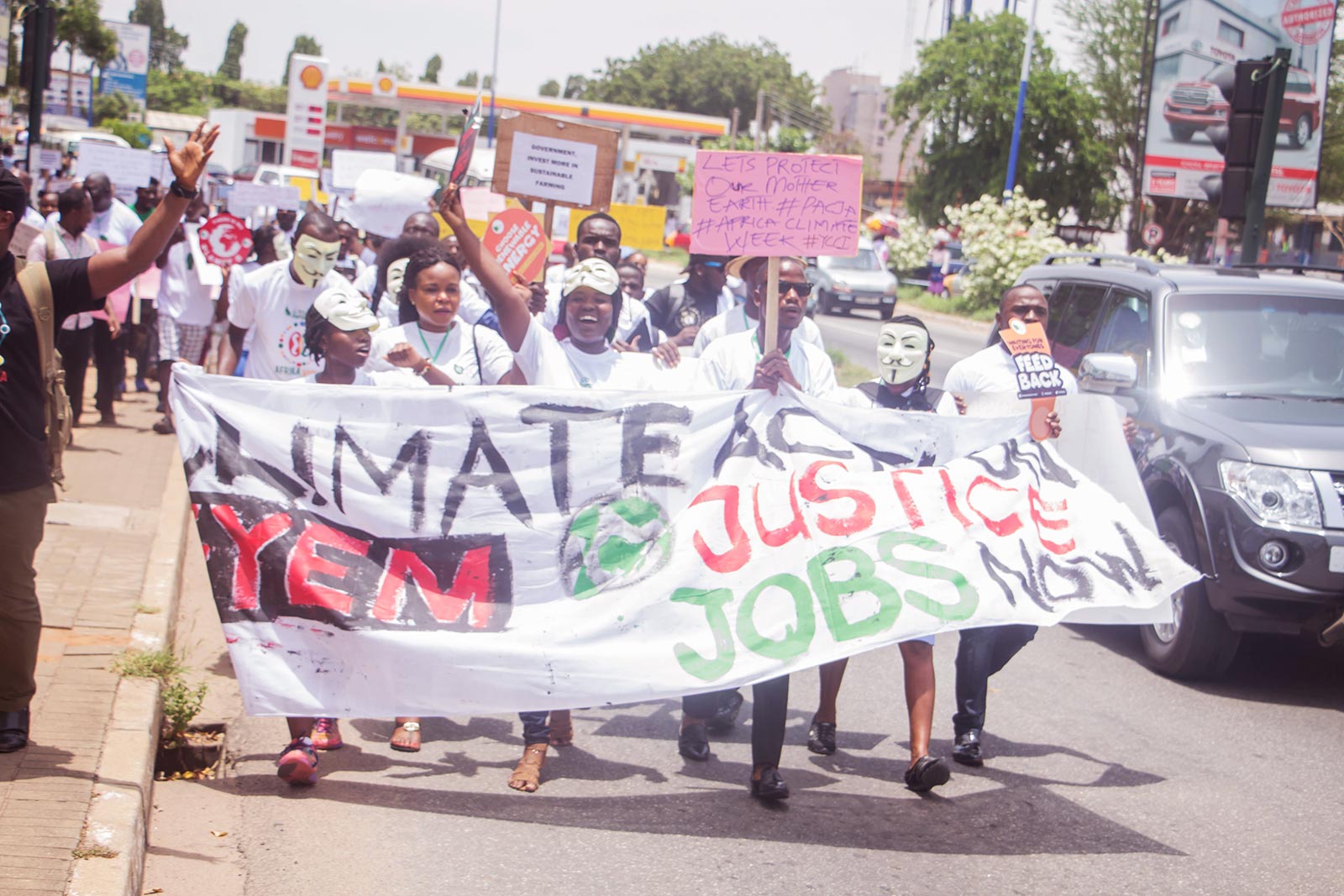
The action was amongst a series of activities by the 350 GROC team in response to the proceedings of the Africa Climate Week hosted by the government of Ghana from 18 - 22 March. The summit’s aim was to enhance engagement between State and non‐State actors in the key sectors of energy, agriculture and human settlements.
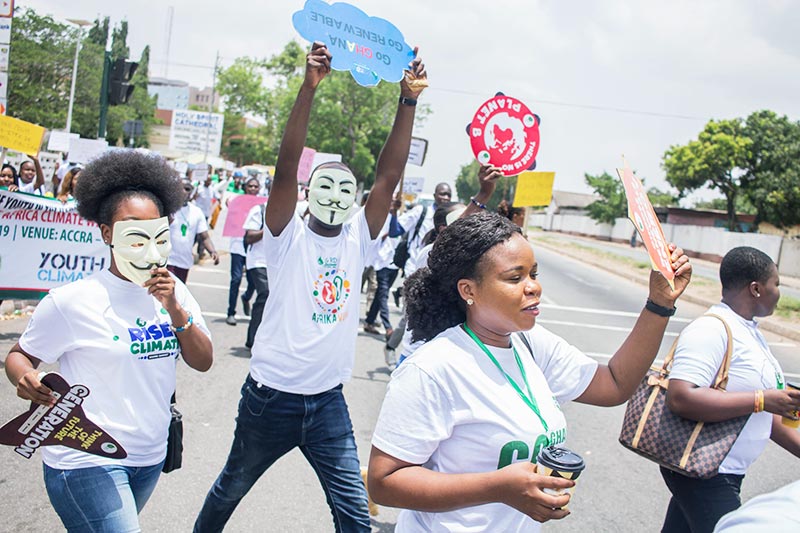
The activists in Accra clearly expressed their opposition to fossil fuels and carbon markets, saying that such false solutions have no place in the new dawn of Ghana, and Africa if we have to combat climate change and achieve the goals of sustainable development.
Before that action, a press conference was held where 350 GROC and its partners asked their government to stop the lip-service and accelerate the energy transition towards 100% renewables.
Although there were no solid commitments from the Africa Climate Week, 350 GROC committed to continuing to push the Ghanaian government to be ambitious and not delay the transition for a 100% renewable energy future.
- Rukiya Khamis


